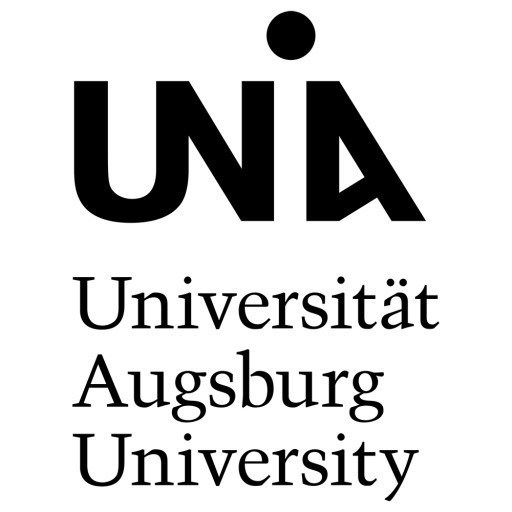Photos of university / #tudelft
Materials Science and Engineering at Delft University of Technology is a comprehensive and innovative programme designed to prepare students for the dynamic field of materials innovation. This Bachelor's and Master's track combines fundamental principles of physics, chemistry, and engineering to understand the structure, properties, processing, and performance of materials. Students will explore a broad spectrum of materials, including metals, polymers, ceramics, and composites, gaining insights into their microscopic structures and how these influence their macroscopic properties. Through a combination of theoretical coursework, laboratory experiments, and design projects, the programme encourages analytical thinking and problem-solving skills vital for addressing global challenges such as sustainability, energy efficiency, and advanced manufacturing. The curriculum emphasizes hands-on experience with state-of-the-art techniques like microscopy, spectroscopy, and materials characterization, enabling students to develop practical skills alongside their theoretical knowledge. Collaboration with industry partners offers real-world project opportunities, fostering innovative thinking and professional development. The programme prepares graduates for diverse careers in industries such as aerospace, automotive, electronics, and environmental technology. Students are encouraged to pursue international internships and participate in research projects, enriching their academic experience and enhancing their employability. The Materials Science and Engineering programme at Delft is committed to academic excellence, innovative research, and fostering a multidisciplinary approach to materials development. Graduates will be equipped not only with technical expertise but also with a critical understanding of societal and ethical implications related to new materials and technologies. This programme is ideal for students passionate about engineering, innovation, and making a tangible impact on the future through advanced material solutions.
Materials Science and Engineering at Delft University of Technology offers a comprehensive and innovative curriculum designed to prepare students for advanced careers in the development, processing, and application of materials. This interdisciplinary program combines principles from physics, chemistry, and engineering to give students a thorough understanding of the properties and behavior of metals, polymers, ceramics, composites, and nanomaterials. Throughout the programme, students engage in both theoretical coursework and practical laboratory sessions that foster hands-on experience and problem-solving skills essential for addressing real-world challenges in various industries, including aerospace, automotive, energy, electronics, and biomedical sectors.
The curriculum covers fundamental topics such as structural analysis, phase transformations, materials characterization, and thermodynamics, along with specialized courses in surface science, materials design, and advanced fabrication techniques. Students learn to select and synthesize materials for specific applications, considering factors like strength, durability, sustainability, and cost-efficiency. An emphasis is placed on understanding the relationship between microstructure and material properties, enabling graduates to innovate and improve existing materials and develop new ones.
In addition to core courses, students have opportunities for specialization through elective modules and research projects. The program includes a mandatory internship, allowing students to gain practical experience in industry or research institutes, thereby enhancing their professional skills and networks. The final phase involves a thesis project, often in collaboration with industry partners or research organizations, involving original research that contributes to the advancement of materials science.
Delft’s program also emphasizes sustainability and responsible innovation, encouraging students to consider environmental impacts and ethical aspects in their work. Soft skills such as teamwork, communication, and project management are integrated into the curriculum to prepare students for leadership roles. The degree prepares graduates for careers in research and development, quality control, product design, and technical consultancy, or for continuing education through master's and doctoral studies.
Overall, the Materials Science and Engineering program at Delft University of Technology is designed to equip students with a solid scientific foundation, advanced technical skills, and a multidisciplinary perspective—empowering them to make significant contributions to technological progress and societal well-being in the dynamic field of materials science.
Admission requirements
See: www.tudelft.nl/msc
Other requirements
- minimum kennis (ISPAC: overige vereisten) Zie www.tudelft.nl/msc
- minimum kennis (ISPAC: overige vereisten) See: www.tudelft.nl/msc
- vooropleiding (ISPAC: vereiste vooropleiding) BScgraad (of zijn equivalent) van een hoge kwaliteit en niveau. Het hoofdonderwerp van desbetreffende Bachelor moet overeenkomen met het beoogde TU-Delft MSc-programma.
- vooropleiding (ISPAC: vereiste vooropleiding) BSc degree (or equivalent) of a high quality and level. The main subject of the BSc study should match the envisaged TU Delft MSc-programme.
Financing studies for the Materials Science and Engineering Master's programme at Delft University of Technology can be approached through several funding options available to both Dutch and international students. First, students can explore scholarships offered directly by Delft University of Technology, such as the TU Delft Excellence Scholarships, which are awarded based on academic merit and are available to students from certain countries. Additionally, the Holland Scholarship provides financial support for students from outside the European Economic Area (EEA) who demonstrate outstanding talent. International students may also consider scholarships from their home governments, which often have bilateral agreements with the Netherlands, or from international organizations and foundations that support STEM students.
Furthermore, students can look into the Dutch government’s tuition fee and student loan schemes, which offer financial support and flexible repayment options for domestic and EU students. Non-EU students might be eligible for the Orange Tulip Scholarship Programme, which supports talented international students in various disciplines, including engineering. Part-time work opportunities are also available for students, regulated under Dutch law, enabling students to work during their studies to supplement funding.
Many students also finance their studies through personal savings or family support. Additionally, some students combine multiple funding sources to cover tuition fees and living expenses, which can amount to substantial sums given the cost of education and living in the Netherlands. It is advisable for students to start exploring these options early and check official DUT and Dutch government websites for the most current information on scholarships, loans, and employment rights. Overall, securing financing for studying Materials Science and Engineering at Delft University of Technology involves a combination of scholarships, grants, loans, and personal resources, tailored to the student’s nationality and financial situation.
The Materials Science and Engineering programme at Delft University of Technology is a comprehensive and multidisciplinary discipline that focuses on understanding, designing, and developing new materials with specific properties for a wide range of applications. The programme aims to equip students with a deep knowledge of the structure-property relationships of various materials, including metals, polymers, ceramics, and composites, as well as emerging materials such as nanomaterials and biomaterials. Students learn to analyze the processes involved in the synthesis, processing, and manufacturing of materials, ensuring they can innovate and optimize material performance in real-world applications.
The curriculum combines theoretical coursework with practical laboratory work, design projects, and group assignments, fostering both technical competence and teamwork skills. Core courses cover thermodynamics, mechanics, materials characterization, and surface phenomena, providing students with a solid foundation in the underlying principles of materials science. Advanced topics include materials design, electronic properties of materials, and sustainable materials development, preparing graduates for careers in research, development, and industry.
The programme emphasizes an integrated approach, encouraging students to think across disciplines by combining principles from physics, chemistry, and engineering. Students also gain experience with computer simulation tools and experimental techniques essential for modern materials research. There are opportunities for industry internships, collaborative projects, and participation in cutting-edge research, which enhance practical skills and employment prospects.
Graduates of the programme are well-positioned to pursue careers in sectors such as aerospace, automotive, electronics, energy, and healthcare, or to continue their studies in master’s or PhD programmes. The university maintains strong links with industry and research institutes, ensuring the education remains aligned with current technological advancements and societal needs. Overall, the programme aims to develop innovative materials scientists capable of contributing to sustainable development, technological innovation, and economic growth through scientific excellence and creativity.








